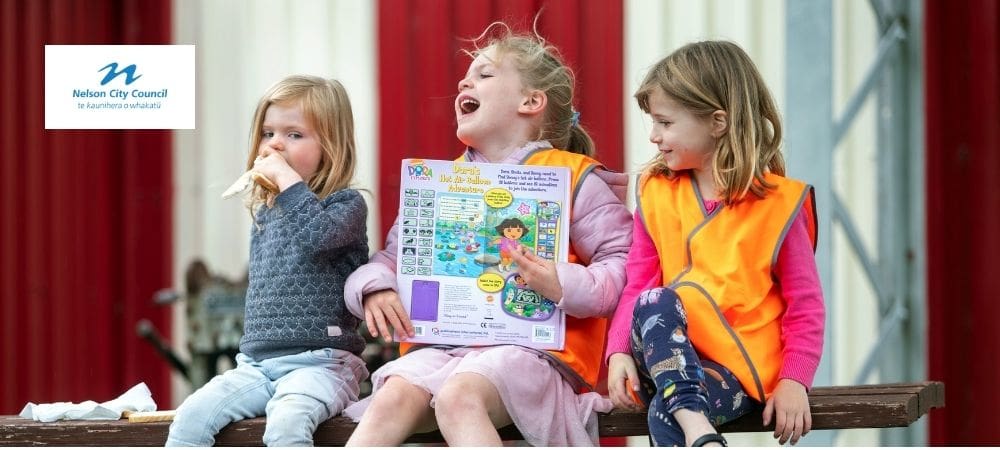Your wellbeing, Nelson’s future’: a comprehensive plan for a resilient City: Nelson City Council
A continued focus on core infrastructure and a modern, sustainable library are key parts of Nelson City Council’s Long Term Plan Consultation Document 2021-31 (LTP).
Nelson Mayor Rachel Reese says the LTP has the wellbeing of everyone in Nelson at its heart.
“We live in an extraordinary location, a Smart Little City that celebrates the contributions of a resilient, creative, and diverse community. However, the last few years have brought a range of challenges that have tested our mental and physical health; cyclones, forest fires, and COVID‐19. Each has impacted Nelson’s social, economic, cultural, and environmental wellbeing and changed the lives of many.
“That is why we have chosen to focus on wellbeing when developing our LTP for the next 10 years. Your wellbeing is a factor that runs through all of the proposals in our plan. We want to look after and improve our infrastructure. We want to be a good partner to the many organisations we work alongside and support, and we must also be guided by the concept of Tūpuna Pono (being good ancestors) and have tomorrow in mind when we decide how to act today.”
Elected members and staff have listened to community feedback from previous Annual Plans and LTP pre-engagement and included many of the things the community prioritise. However, as Council must also consider rates affordability and debt levels, some of the things people have asked for have not been possible to include or are occurring in later years.
Council has identified eight key issues that will be addressed in the LTP and are vital to a society that puts wellbeing first: Climate Change, COVID-19, Debt vs. Rates, Nelson City Centre, Community Facilities and Partnerships, Housing Affordability and Intensification, the Environment, and Infrastructure.
By far the most significant proposed spend in the LTP is the infrastructure programme. There is now $449m invested in transport and utility projects over the life of the LTP, making up 71% of Council’s total capital expenditure and approximately 49% of Council’s operational expenditure.
Nelson Mayor Rachel Reese says this money is an investment in our community’s future wellbeing and will act as a substantial boost to Nelson’s economy in the wake of COVID-19.
Another standout item is our proposal for a new library and the Maitai River Precinct. Council proposes to invest $44.4m ($46.3m inflated) in a new library precinct designed to be both sustainable and resilient to climate change, with the cost spread over 65 years. The new library will offer the community enhanced spaces for meetings, greater technological resources, archive facilities, activity rooms and spaces where people can be creative.
Mayor Reese says the aim is to provide a facility that makes the most of our collection, is the centrepiece of a new Maitai River Precinct, and provides a focal point for the community.
“Libraries offer people the chance to expand their horizons. They are a gateway to opportunity and a great equaliser for our community. It’s a place for social connection, everyone is welcome and no ticket is required. A place to sit and be.”
A new Science and Technology Precinct in collaboration with Port Nelson and the Cawthron Institute is another project that will improve employment opportunities in Nelson.
“This will be a place where innovation and creativity can thrive,” says Mayor Reese, “a hub for companies that specialise in the ocean economy and aquaculture. We propose to support this project to a total value of $5m, with the cost to the ratepayer spread over 40 years. I am confident it will create work, boost our local economy and improve the City to Sea connection.”
Reducing emissions is central to Council’s climate change proposals. For example, $13.3m is earmarked for collecting food waste at the kerbside for composting, pending a current trial’s success. Diverting food waste from landfill, where it creates methane and CO2, is an important initiative to reduce our city’s emissions.
Tackling invasive weeds on our reserves is another focus, with $11.5m allocated over 10 years. This combines with our plans to plant more trees along the Maitai/Mahitahi River as part of the Jobs for Nature programme, allowing forest regeneration to occur.
Mayor Reese says the LTP Consultation Document contains options for people to consider and questions about what they value.
“Some of this work is not optional. We can’t choose to ignore the impact of climate change, or the housing crisis. We can’t let our infrastructure deteriorate or fail to account for growth. The crucial question is how this work is funded.”
The overall rate rise across the 10-year period is projected to be between 5 and 5.7 percent. At the end of the 10 years our net debt will be $291m.
“If we accept we need to invest in the future of our Smart Little City, then we need to find a balance between the debt inherited by future generations and keeping rates affordable.”
Nelson’s Long Term Plan 2021-2031 Consultation Document is open for public consultation from Monday 22 March to 21 April.
A summary of the document will be delivered to all households during the first two weeks of the consultation. Further information can be found at https://shape.nelson.govt.nz/long-term-plan-2021-2031.
Mayor Reese urged the public to have their say.
“If there are things you don’t think we should be doing we want to hear from you, if there are things you support, then we want to hear from you, and if you think there are things we are missing, then we want to hear from you.”


This Post Has 0 Comments